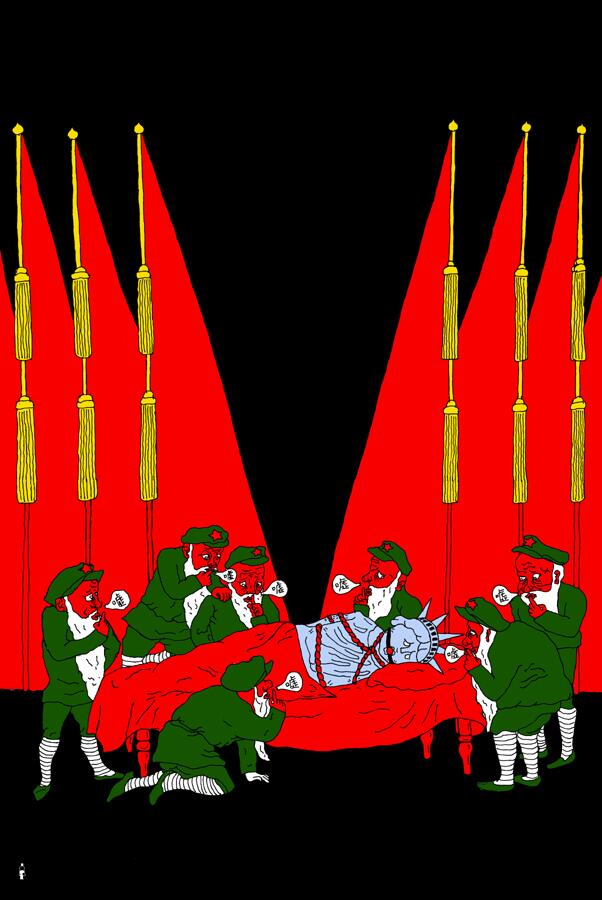The Word of the Week comes from the Grass-Mud Horse Lexicon, a glossary of terms created by Chinese netizens and encountered in online political discussions. These are the words of China’s online “resistance discourse,” used to mock and subvert the official language around censorship and political correctness.
qī bù jiǎng 七不讲

The seven don’t mentions tie down the Statue of Liberty. (Artist: Badiucao 巴丢草)
Seven politically sensitive topics that the government has prohibited university professors and lecturers from discussing with students, enumerated in a directive allegedly issued by the General Office of the Party Central Committee to institutes of higher education in May 2013. The directive, which was leaked on Weibo and subsequently censored, outlined seven topics that were forbidden to be raised with students: universal values, press freedom, civil society, civic rights, historical mistakes by the Communist Party, elite cronyism, and an independent judiciary.
The “seven don’t mentions” appear to have been distilled from the “Communiqué on the Current State of the Ideological Sphere,” also known as Document Number 9, which lists seven threats to the legitimacy of the Chinese Communist Party. In April 2015 investigative journalist Gao Yu was sentenced to seven years in prison for “leaking state secrets” for allegedly sending Document No. 9 to Mingjing News (Mirror Media Group). Gao maintained her innocence during her imprisonment, claiming that her earlier televised confession was coerced. By June, reports came that Gao was being denied proper treatment for worsening heart and other medical conditions. Authorities initially refused to answer calls for her medical release unless she repeat the earlier confession on state television. After continued calls for her release, on November 26, 2015 Gao was granted a sentence reduction and medical release, and allowed to serve the remainder of her sentence under hospital care or house arrest. She has since been denied permission to leave China for medical care, and reportedly harassed by a group of plainclothes policemen who destroyed her garden and roughed up her son.
The CCP has long sought to contain dissent in institutes of higher education. Student movements, such as the 1989 protests, have historically been major sources of unrest. A campaign against “Western values” in higher education began in January 2015.
“Seven don’t mentions” was blocked from Weibo search results as early as May 10, 2013, and tests by CDT editors showed that it remained blocked as of April 23, 2015. Further search tests for the keyword on May 24, 2018 did yield results, and attempts to post the term were successful.







